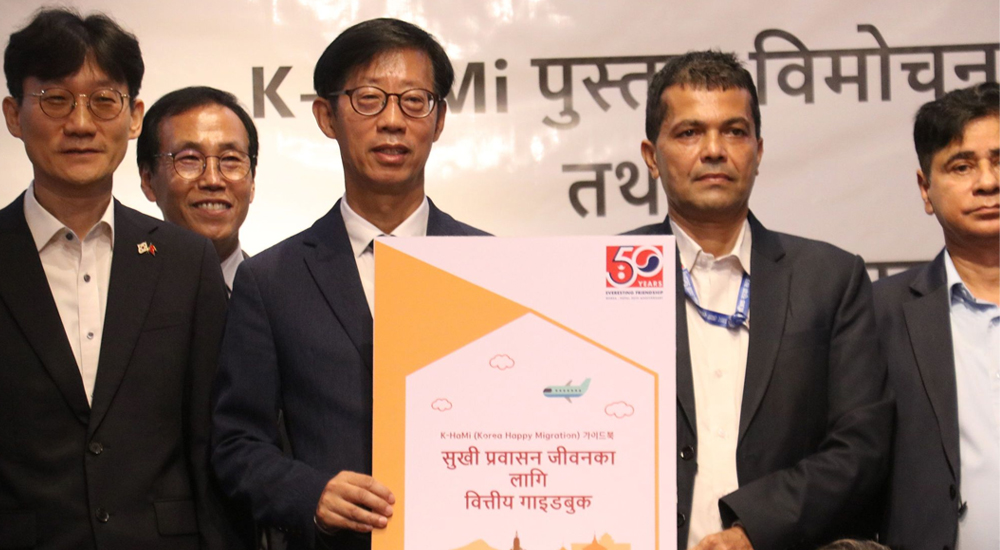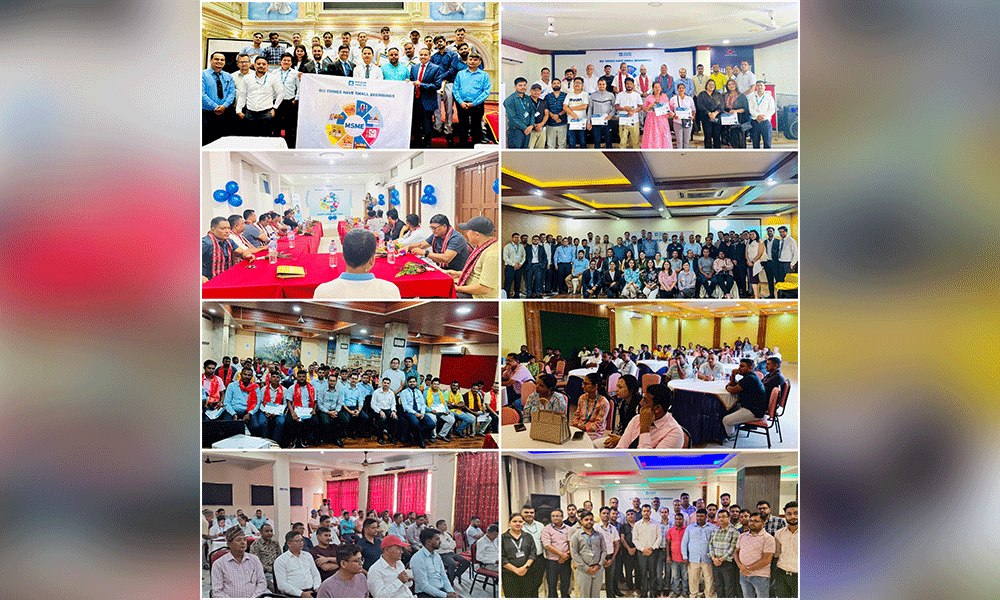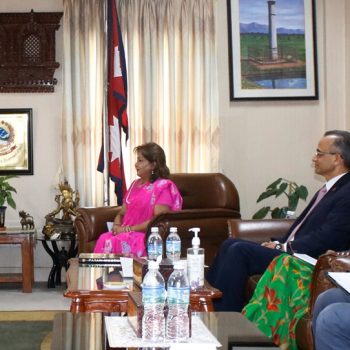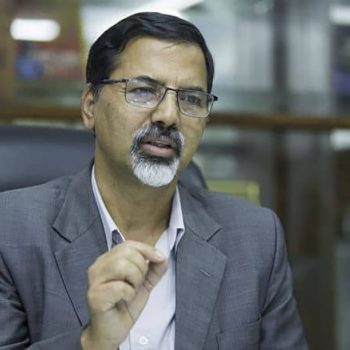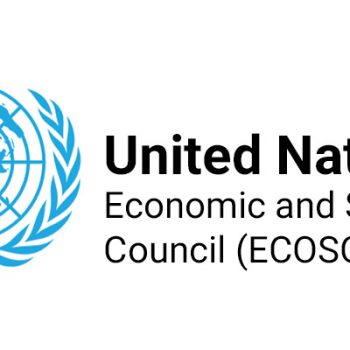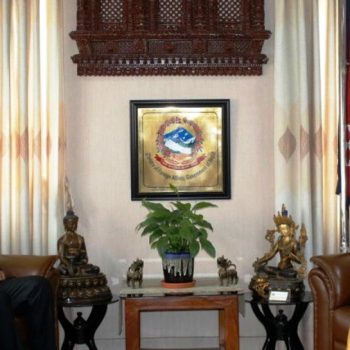Government fails to implement budget again, coronavirus continues to affect expenditure
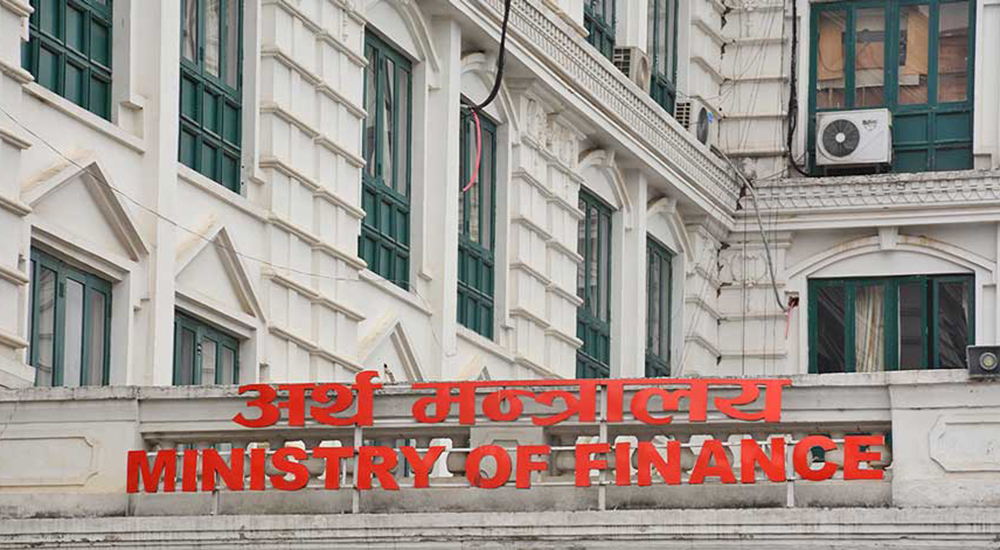
KATHMANDU: The government has been weak in spending the budget for the current fiscal year as well. The government has presented a budget of Rs. 1,474.64 billion for the fiscal year 2077/78, but only 68.64% has been spent until the 1st of July.
Although the current expenditure is close to the target, the capital expenditure and expenditure on financial management are not at expected levels. The government has allocated Rs 948 billion for current expenditure, but according to the latest figures, it has reached Rs 766 billion or 80.82% so far. However, out of the budget allocation of Rs 352 billion, only Rs 163 billion or 46.2% has been spent. Similarly, out of the budget of Rs 172 billion allocated for financial management, only Rs 81.37 billion or 47.59% has been spent.
The revenue collection by the government is close to the revised target. Out of the target of revenue collection through the budget of Rs. 1011 billion, about Rs. 845 billion or 83.55% revenue has been collected. Of the target of Rs 912 billion for tax revenue, Rs 788 billion or 86.59% has been collected. Similarly, non-tax revenue is estimated to be Rs. 98.80 billion, of which only Rs. 54.48 billion or 55.46% has been collected. The government has set a target of Rs 60.52 billion in grants, but only Rs 10 billion or 16.65% has been received.
On 23rd January, Finance Minister Bishnu Prasad Poudel presented a half-yearly review of the budget and reduced the target of budget expenditure and revenue collection. It was mentioned in the half-yearly review that only 91.19% of the total allocated budget or Rs 1344 billion will be spent. Of which, 96.4% will be for current expenditure, 80.20% for capital expenditure and 85% for financial management. The target was to collect Rs 1074 billion including internal debt and Rs 235 billion from external sources.
The third review has presented that only 85.9% of the total allocated budget, i.e. around Rs. 1267 billion, will be spent. Of this, 91.4% is estimated to be spent on current expenditure, 71.3% on capital expenditure and 85.2% on financial management.
It is estimated that 94.8 percent of the total revenue will be collected. Similarly, the target of mobilizing 27.06 billion foreign grants and 165 billion foreign loans and 223 billion domestic loans has been set through the third review. According to the third review, the government may be able to meet the target of current expenditure, revenue, internal and external debt of the budget, but it is not possible to meet the target of capital expenditure, financial management and foreign grants.
According to the Ministry of Finance, the budget expenditure on capital and financial management could not be spent due to COVID-19 and the weak expenditure system of concerned ministries. Spokesperson of the Ministry Mahesh Acharya said, “As the current expenditure includes expenses of the nature of creating mandatory liability, it seems that the current target will be reached.” However, as concerned ministries are unable to spend the budget and due to COVID-19, it is not possible to meet the target of spending on capital expenditure and financial management.
Acharya says that the revenue target as per the third review of the budget can be met as there are still a few days left till the end of the current fiscal year.
Chronic failure of budget implementation
Failure of expenditure of the targeted budget is an old problem of Nepal. The budget allocated to Nepal has not been fully spent due to the presentation of a budget larger than the size and capacity of the economy, lack of clear policies and criteria for contracting in development works, and weak capacity of government spending bodies and contractors.
Due to collected revenue not covering the current expenditure and loans having to be taken for development activities, the budget gets released haphazardly all at once at the third trimester. In the last two years, the capital expenditure has not been spent as the COVID pandemic started in April. Lenders usually pay only after the basis of expenditure has been presented.
Experts say goals are ambitious but systems are weak
Experts say that when the budget is spent at the end of the year, generally there is widespread misuse of resources. He argues that the government has ambitious goals but has failed to improve the implementation system. Some economists’ reactions to budget expenditure are as follows:
The government has become propagandistic: Former Finance Minister Dr. Ram Sharan Mahat
The government has a tendency to bring in budgets larger than the capacity of the economy. However, the budget could not be spent due to weak implementation capacity.
This government has become too ambitious, reflected by all the threatening and its setting of large budget targets. However, the ability to implement this has not been seen. The budget has not been implemented as the budget has been presented in a promotional manner by including programs directly in the budget without any preparation and study.
Look at the goal of economic growth. Last year, the government set a growth target of 8.5%, but it turned negative at 2 percent. The target of 7% for the current fiscal year has not been achieved. Therefore, it is proven that this government believes in propaganda rather than reality.
Monitoring and Evaluation is weak: Dr. Shankar Sharma
Inclusion of projects in the budget without adequate preparation and weak monitoring and evaluation have not helped the budget expenditure tendency. Unless we have a well-prepared calendar for projects of the upcoming year, budget expenditure is unlikely to improve.
Sharma is of the view that programs should be included in the budget with only the tender process remaining, after completing all the works including land acquisition and DPR. Budget expenditure has been reduced due to inability to improve the spending capacity of government bodies and construction businessmen.
In order to complete projects on time, the technical aspect should be given more importance than the economic aspect. The project can pick up speed if political interference in the project is minimized and a suitable working environment is created for the project head.
The low budget expenditure was also due to COVID-19 in the last fiscal and current fiscal year. COVID-19 hit hard at a time where both the expenditure and work would have been high. The monsoon of the current fiscal year also came a little early. This has taught us a lesson that things must be done quickly and on time.
Budget procedures and spending mechanisms need to be improved: Economist Dilliraj Khanal
Nepal prepares to spend the budget in July. Last year, capital expenditure was less than 50%. The situation is similar in the current fiscal year.
If we want to improve budget spending, we need to improve the method, process, spending mechanism and capacity of budgeting. If we are unable to improve this, the budget seems to be spent just for expenditure rather than making it result-oriented and productive.
Although we have suggested that budget expenditure should be systematically improved before and after preparing the budget, no hearing has been held. The result of not improving our traditional budget spending system seems to be reflected in the current budget.
When the budget is not spent, multifaceted effects are seen. The tendency to not spend the budget on time leads to high fluctuations, misuse of resources, lack of quality of work and unsustainability. The continuation of this trend of spending for the sake of spending has pushed back our journey to prosperity. I think this is a serious procedural problem as it does not support building a prosperous economy through qualitative and sustainable economic development.
The current context was not assessed properly: Prof. Dr. Chandra Mani Adhikari
Right when the budget for the current fiscal year was presented, I said that this budget was also in crisis. Since the budget has been presented without considering the COVID-19 and the situation, it is natural for there to be problems in expenditure.
A budget was presented without an in-depth study of the impact of COVID on the production, employment, consumption, and trade and business aspects of the economy. Similarly, the budget has not been introduced with the understanding that it could not be spent properly in the past and analysis of the reasons. The current year’s budget was brought in a more conventional style rather than as suited to the context. The budget could not be spent as we could not assess the current situation well.
The budget should have been prepared in a scientific manner and only the projects that were in full readiness should have been included. Tender documents should be completed before the budget arrives. Only then can the budget be presented, the schedule prepared and the call for contracts, evaluations and awards completed within August/September.
Similarly, the use of digital media and proper coordination between the three levels of government is necessary to take the work forward.
Political instability affects budget expenditure: Former Governor Dipendra Bahadur Chhetri
There is no coordination between the budget figures and the allocation programs. In Nepal, there also exists a tendency to allocate the budget, but not provide resources.
Also, five ministers are having to run the country. This also seems to affect budget implementation. On the other hand, it is time for elections. The government has not allocated adequate budget for projects of national pride. Disputes are seen in the DPR of new programs included in the budget and in land acquisition and compensation.
People are frustrated as the budget is not being spent effectively. Budget expenditure will be effective only if political disputes are resolved and human resources are managed properly. As this government is embroiled in political controversy, it seems that the inability to form a systemic structure has resulted in incomplete and ineffective budget expenditure.



